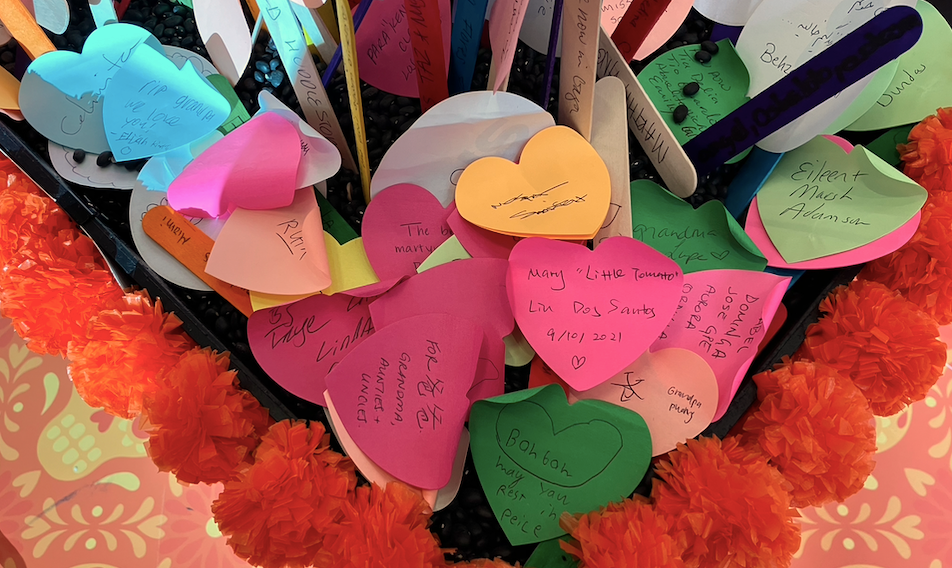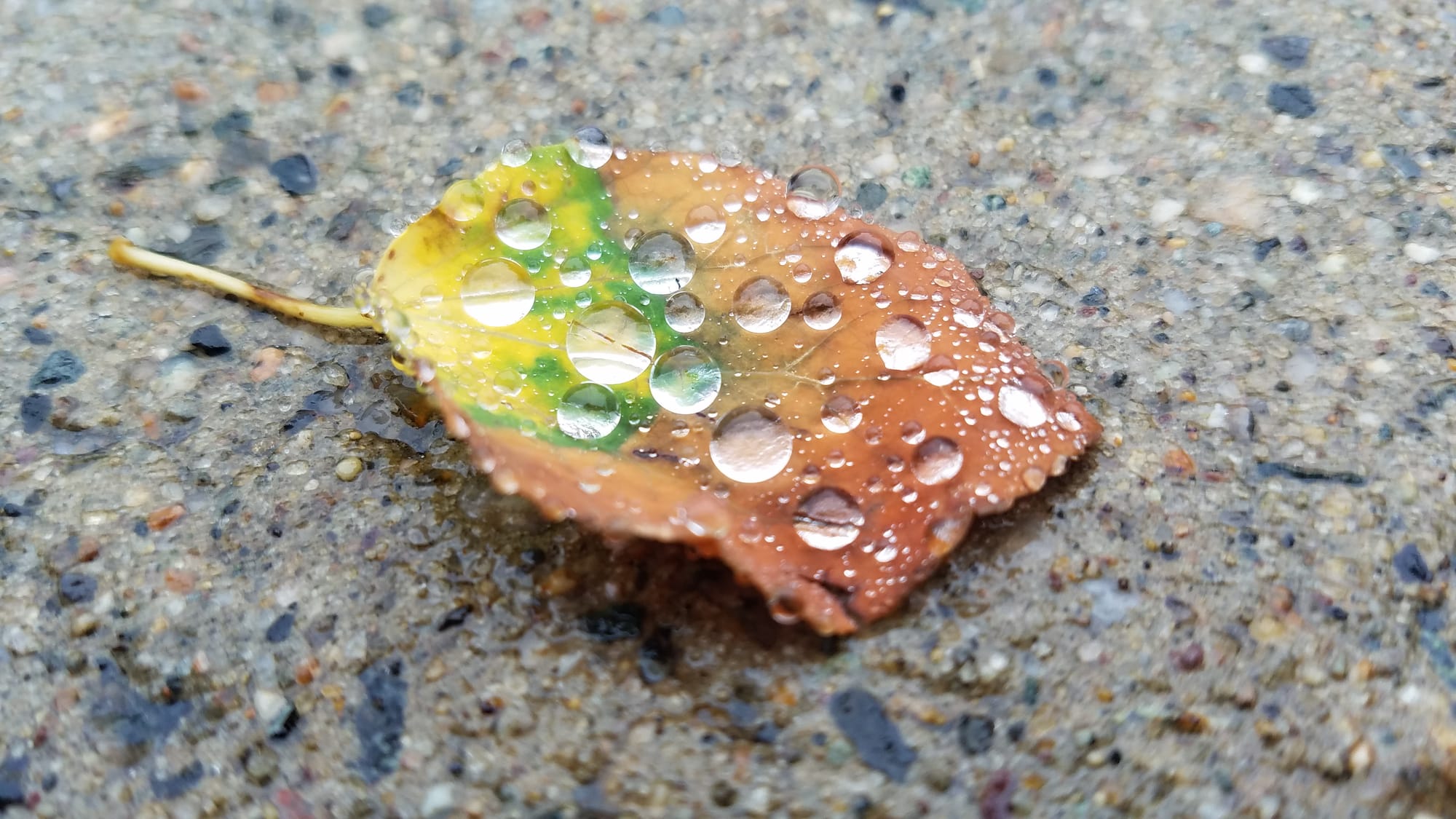A Strong Back: Part 2
“By living in this world, she’s living through you as well, because she’s a part of you always.” My husband’s words echoed in my mind as I took immense solace in knowing that in a way, this body would continue to carry our precious little girl. Self-care suddenly held a new meaning and purpose.

A Strong Back, the September 2025 issue of Fieldnotes from a Watcher, is dedicated to those who've courageously endured chronic pain. This is a personal story, not medical advice. See full disclaimer at the end.
“Your back has been messed up for years!” The spine doctor exclaimed as he pointed at the MRI image before we wrapped up the appointment.
He was not wrong on that front.
Poor posture since childhood and no education around spine health led to years of lower back pain. Most of my teen years were spent sitting, hunching over, and studying, from 7:30 in the morning to 10 at night. Group exercises and PE classes were necessary but not essential, occupying perhaps 10% of daily waking hours.
“Don’t hunch over!” my mom would often command while patting my upper back. It was the only reminder about back “health” that echoed till this day. Education was shockingly scant given the sedentary lifestyle of a Chinese adolescent. And my mother’s reminder frankly had little to do with back health, but more with appearance. “You’d look prettier and taller with your back straight,” she’d explain. But my mom didn’t know better either. And concerns about looks were squashed by the rigid secondary education system in my home country. Nobody should care about their looks (which is considered a distraction) amid the trying years of preparing for gaokao, the infamous national college entrance exam.
So my mother’s command wasn’t effective. Taking care of the body - for health or looks - was at the bottom of the priority list.
Subsequent years in the U.S. were no different. I continued to habitually neglect my body, even as it sustained chronic anxiety from studying abroad and acculturation (including physical and sexual overwhelm of existing among American college students at a southern public school). Ironically, I was very much aware of the anxiety in my mind, but tended to intellectualize to feel “smart” instead of owning or feeling the anxiety itself. It’s no surprise that someone who proudly spends a lot of time in the head ignores the body and its wisdom or warnings, considering them a minor nuisance compared to the “more compelling” anxiety in the mind.
For years, I brushed off the chronic lower back soreness, strained neck and shoulder muscles, clenched teeth (and the resulting TMJ disorders), and increasing pelvic floor tension (which was only discovered much later). I’ve also often needed clear and intellectual reasons to bring awareness to the body. Even as recently as my second pregnancy, I was still convinced that only after the anxiety in the head was “solved,” the body could then follow and heal. While working with a counselor who specializes in perinatal mental health, I admitted to her “I’m not sold” when discussing mindful breathing and body scan meditation as part of the treatment plan, and proceeded to explain why. I was keen on “outsmarting” the body with my mind, unaware of how intimately connected they actually are.
Of course, I am aware that I’m not just what my husband likes to call a “floating brain in a jar.” Every human being has a meat suit, naturally. Aside from the chronic physical ailments that I neglected, there have been more pronounced reasons - what David Brooks calls “agency moments” - that brought me closer to my body, albeit over a long period of time. Profound changes are usually slow. These experiences were as physical as they were emotional. They not so gently nudged me toward seeing the irrefutable union of the body and mind.
Savoring this story? Become a member of Fieldnotes from a Watcher and access more creative nonfiction essays exploring life's timeless moments that are as personal as they are universal.
After the first-ever heartbreak in my mid twenties as a result of ignoring my own feelings in favor of my then partner’s, months of rumination revealed a world of previously unconscious knowledge about the self. Besides childhood trauma and attachment style, I also realized how little I paid attention to the basics of my body and well-being: a balanced diet, healthy sleep habits, or physical exercises. I questioned, if I wasn’t even taking care of these fundamental (and physical) aspects of my own life, how could I practice physical or emotional self-care that’s crucially necessary in a healthy relationship?
Seven years after that breakup, my husband and I lost our daughter - our first child that was so wanted - to termination for medical reasons. First-trimester ultrasounds and tests discovered not one but two chromosomal abnormalities that occurred randomly. These diagnoses meant that our girl had very little chance of surviving to full term. If by some miracle she did survive, she would have been born into immediate heart surgeries and a laundry list of physical, behavioral, and psychological symptoms through the rest of her life. After exhausting all possible tests and procedures in hope of a miracle to no avail, we made the impossible decision to terminate the pregnancy. Everything happened within four weeks, during which we cried some of the most soul-wrenching tears of our lives. Our world turned upside down.
During a pre-conception counseling session about a year before our loss, the nurse practitioner reassured me, “Your body is designed to do this.” Like many first-time parents-to-be, I was nervous about pregnancy and birth. Having been disconnected from my body meant I rarely considered how resilient and imperfect the body could be. I was oblivious of the fact that even though my body is designed to carry a pregnancy, it’s by no means a precise machine. So when the doctor consoled me after bluntly announcing the dreadful ultrasound findings, “I just want to be very clear that this is not because of something you did; it's unfortunately just mother nature,” I was utterly blindsided.
“How can I live fully in this world now, knowing that a part of me is no longer here?” Buried deep in all-consuming grief, I asked my husband shortly after our daughter died. My body had been recovering from the termination procedure slowly, but my heart remained shattered. As grief-stricken as my husband was too, he responded to my melancholy with his usual hopefulness, “By living in this world, she’s living through you as well, because she’s a part of you always.” As spiritual as his answer was intended to be, it turned out puzzlingly true in a physical sense as well.
A few days after that exchange, I stumbled upon a peculiar concept called microchimerism, and specifically, fetal-maternal microchimerism. It describes the phenomenon where during pregnancy, cells from the fetus can pass through the placenta and enter the mother’s bloodstream. These fetal cells then multiply, migrate, and integrate into various maternal tissues for decades after pregnancy, leaving a nearly permanent imprint on the mother’s body. Since fetal cells can enter the maternal circulation as early as the first trimester, it dawned on me that even though my daughter died at 16-week gestational age, perhaps some of her cells remained in my body and would persist for decades to come. She and I literally were still connected - and would be forever - in a way that traced back to how we were from the beginning.
“By living in this world, she’s living through you as well, because she’s a part of you always.” My husband’s words reverberated in my mind as I took immense solace in knowing that in a way, this body would continue to carry our precious little girl. Self-care suddenly held a new meaning and purpose.
Continue to Part 3 here.
Disclaimer: The content of this essay is based on personal experience. It is for storytelling and informational purposes only and should not be considered medical advice. I am not a medical professional, and any decisions about your specific situation, diagnosis, treatment, or health care should be made in consultation with qualified medical practitioners.
